LONDON: Jill Stein, the US Green Party’s presidential candidate known for her vocal support of Palestinian rights, has emerged as the top choice among Arab American voters in the lead-up to the US elections on Nov. 5, according to a recently conducted poll.
Stein, running as a third-party candidate, has garnered the support of over 45 percent of Arab Americans surveyed by the Arab-American Anti-Discrimination Committee, the largest Arab-American grassroots civil rights organization.
This places Stein, a physician and environmentalist, ahead of the presumptive Democratic presidential nominee, Vice President Kamala Harris, who received 27.5 percent of the vote in the same poll.

The survey was conducted between July 27 and 28 through a partnership between the ADC, Molitico for data insights, and the Community Pulse, which specializes in polling solutions.
According to Abed Ayoub, ADC’s national executive director, the Arab-American voter demographic has increasingly gravitated toward Stein owing to her advocacy for Palestinian human rights and her opposition to the Israeli military’s actions in Gaza since October.
In a post on the social platform X, he said: “Green Party candidate Dr. Jill Stein’s strong polling at 45.3 percent, akin to the previous poll, demonstrates consistent community support, largely because of her vocal stance on Palestinian human rights.”
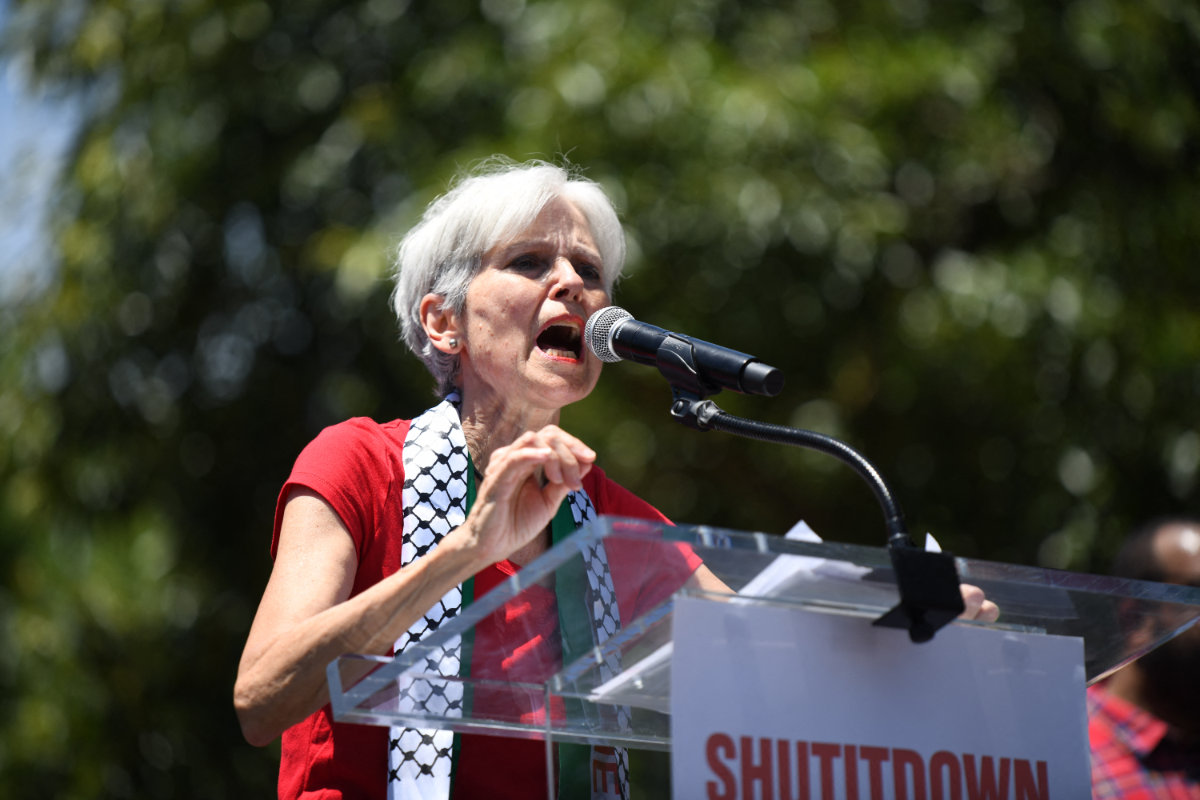
Green Party presidential candidate Jill Stein speaks at a Pro-Palestinian protest in front of the White House on June 8, 2024 in Washington, DC. (Getty Images via AFP)
Stein has been a favorite among Arab voters since ADC’s last opinion poll in May, where she led with 25 percent support. In comparison, President Joe Biden, who withdrew from the presidential race in July, and Republican candidate Donald Trump, polled at 7 percent and 2 percent, respectively.
In 2022, 2.2 million people in the US reported having Arab ancestry in that year’s Arab Community Survey. The majority of Arab Americans are native-born, and 85 percent of Arabs in the US are citizens.
While the community traces its roots to every Arab country, the majority of Arab Americans have ancestral ties to Lebanon, Egypt, Syria, Palestine and Iraq. The top four states by Arab American population size are California, Florida, Minnesota and Michigan.
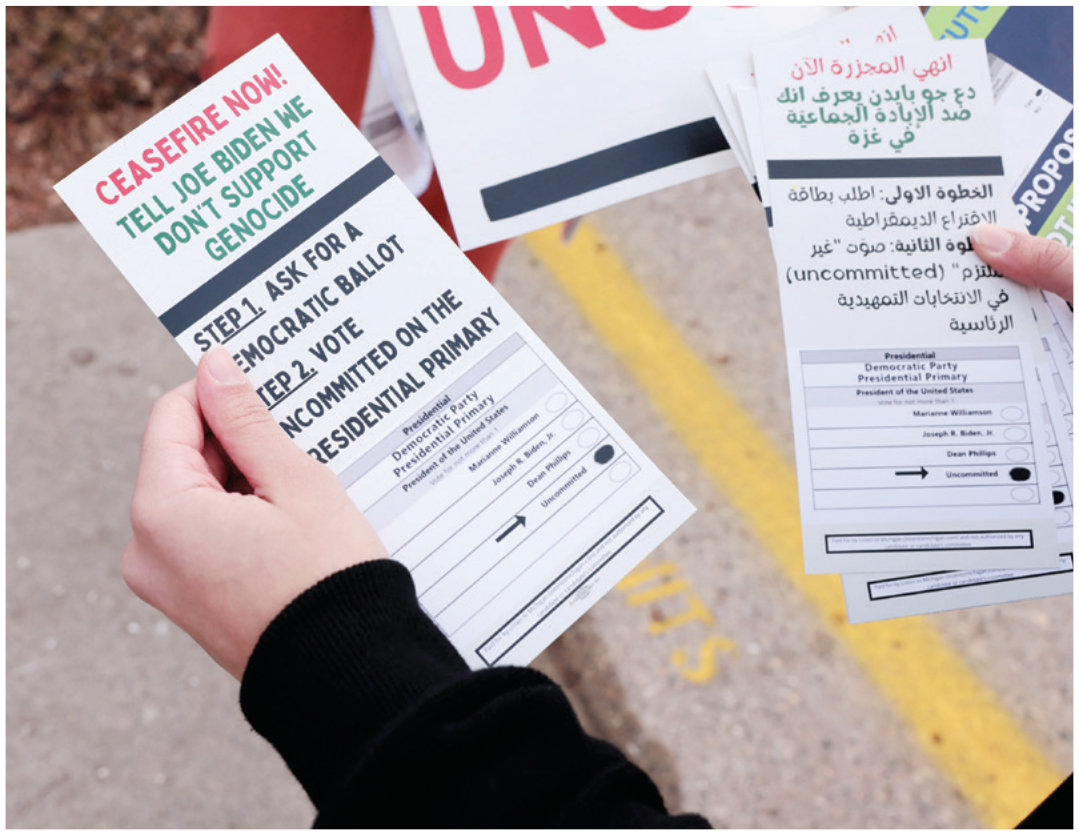
Activists show people how to vote uncommitted, instead of for US President Joe Biden, outside of Maples Elementary School in Dearborn during the Michigan presidential primary election on Feb. 27, 2024. (AFP/File)
Ayoub noted in his post that Biden’s declining popularity among Arab Americans was “due to the retiring president’s staunch support for Israel’s continued actions in Gaza.”
The Israeli military launched a bombing campaign in Gaza in retaliation for the deadly Hamas-led attack on southern Israel on Oct. 7, 2023, during which the Palestinian militant group took more than 200 hostages.
The death toll of Palestinians in Gaza has since surpassed 39,500, with at least 15,000 children killed and over 12,000 others injured, according to Gaza’s health authorities
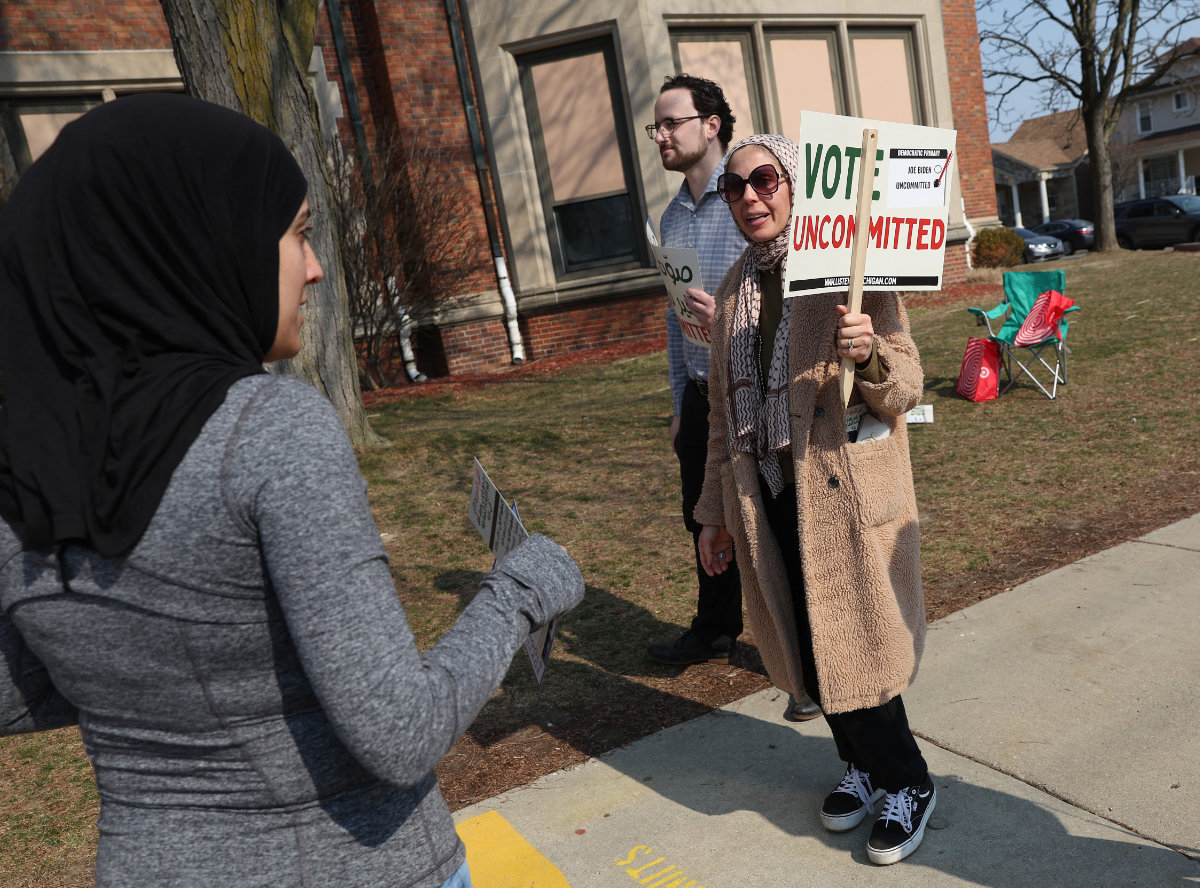
A Democratic voter uncommitted to President Joe Biden hands out fliers to voters outside of a polling location at Maples Elementary School on February 27, 2024 in Dearborn, Michigan. (Getty Images/AFP)
Humanitarian organizations, rights groups, and governments worldwide have repeatedly called for a ceasefire, but Israel has continued its military operations.
Stein has consistently criticized Biden and his administration for their unwavering support for Israel, warning in an Aug. 1 post on X that the Israeli government was dragging the US “into WWIII.”
Following the suspected Mossad elimination of Hamas political chief Ismail Haniyeh in Tehran and a senior Hezbollah figure in Beirut last week, Stein criticized Biden and Harris for their “deafening silence” on “Israel’s massive escalation toward a wider war.
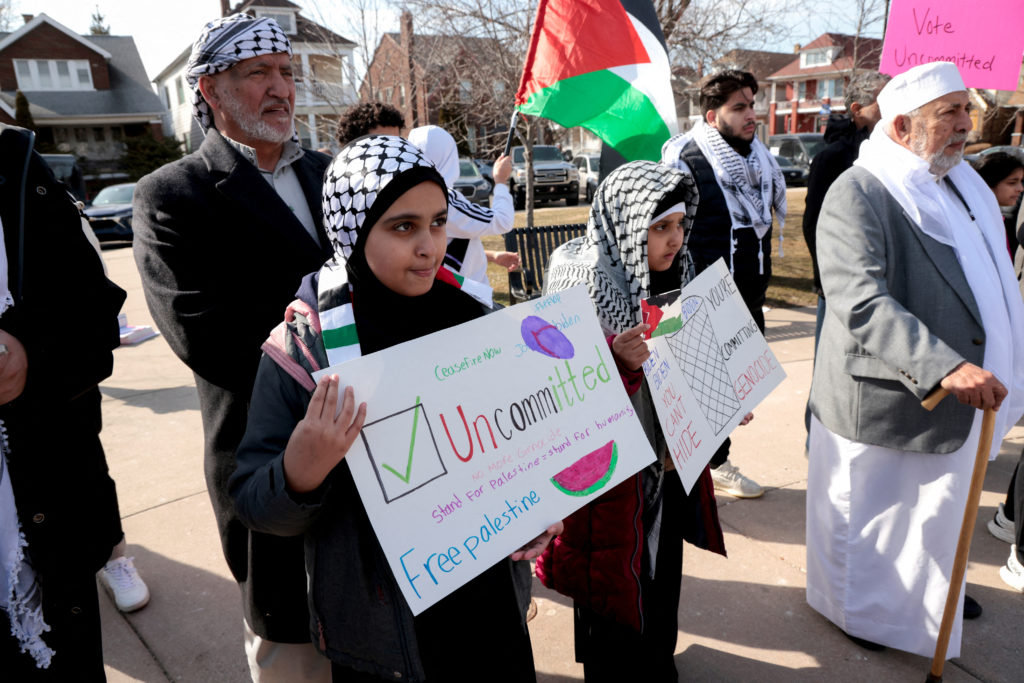
Pro-Palestinian demonstrators protest in Dearborn, Michigan as US President Joe Biden attends the NAACP Freedom Fund dinner in Detroit, Michigan on May 19, 2024. (AFP)
In a July 31 post on X, Stein demanded that “the US immediately cut off aid to Israel, mandate a ceasefire, and arrest war criminal (Israeli Prime Minister Benjamin Netanyahu) before he gets us all killed.”
The killing of Haniyeh on July 31 has heightened fears of an all-out, regional conflict. Iran’s Supreme Leader Ayatollah Ali Khamenei vowed revenge, warning Israel that it had “paved the way for your harsh punishment.”
Netanyahu’s government has neither claimed responsibility nor commented on Haniyeh’s death. US Secretary of State Antony Blinken said the US was “not aware of or involved in” the killing.
FAST FACTS
• Arab Americans live in all 50 states, but up to 95% live in metropolitan areas.
• New York, Detroit, Los Angeles, Chicago, Washington D.C., and Minneapolis are the top 6 metropolitan areas.
• Nearly 75% of all Arab Americans live in just 12 states: California, Michigan, New York, Texas, Florida, Illinois, New Jersey, Ohio, Minnesota, Virginia, Massachusetts, and Pennsylvania, and Virginia.
• Nearly a quarter of Arab Americans are Muslim, while the religious background of the rest are Catholic, Orthodox and Protestant.
However, the day before Haniyeh’s death, Israel claimed responsibility for killing Fuad Shukr, a top Hezbollah commander, in an airstrike on a building in southern Beirut. Hezbollah has promised a “definite” response for Shukr’s killing.
Whether or not the US was involved in these escalations, Biden’s Middle East policy has faced sharp criticism since October, with human rights groups urging the US administration to halt arms transfers to Israel.
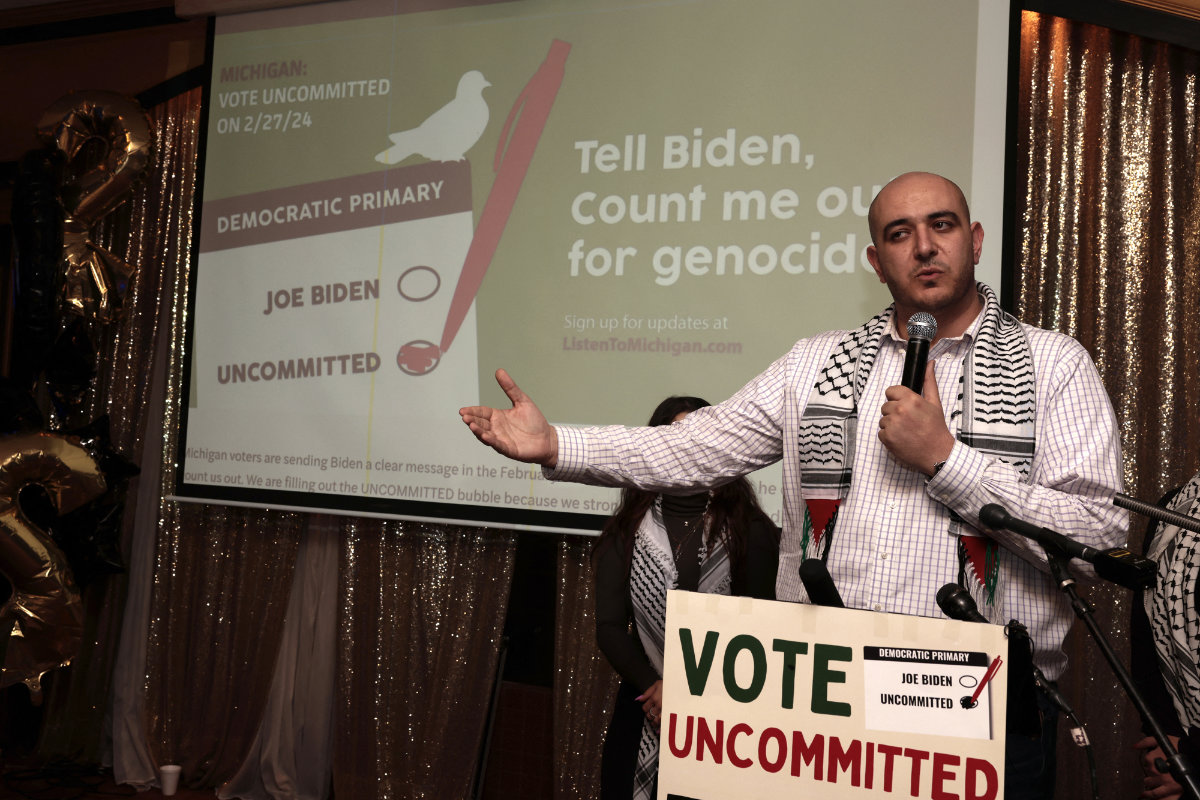
Abbas Alawieh, spokesperson for Listen to Michigan, a group who asked voters to vote uncommitted instead of for US President Joe Biden in Michigan's US Presidential primary election, during an election night watch party in Dearborn, Michigan on February 27, 2024. (AFP)
In late April, Amnesty International reported that US weapons supplied to Israel had been “used in serious violations of international humanitarian and human rights law, and in a manner inconsistent with US law and policy.”
In May, the International Criminal Court’s prosecutor, Karim Khan, requested arrest warrants for Netanyahu, his defense minister, and three Hamas leaders, including Haniyeh, for war crimes and crimes against humanity.
Chris Habiby, ADC’s national government affairs and advocacy director, says the poll revealed two key insights. “First, President Biden is deeply unpopular among Arab Americans,” he told Arab News.
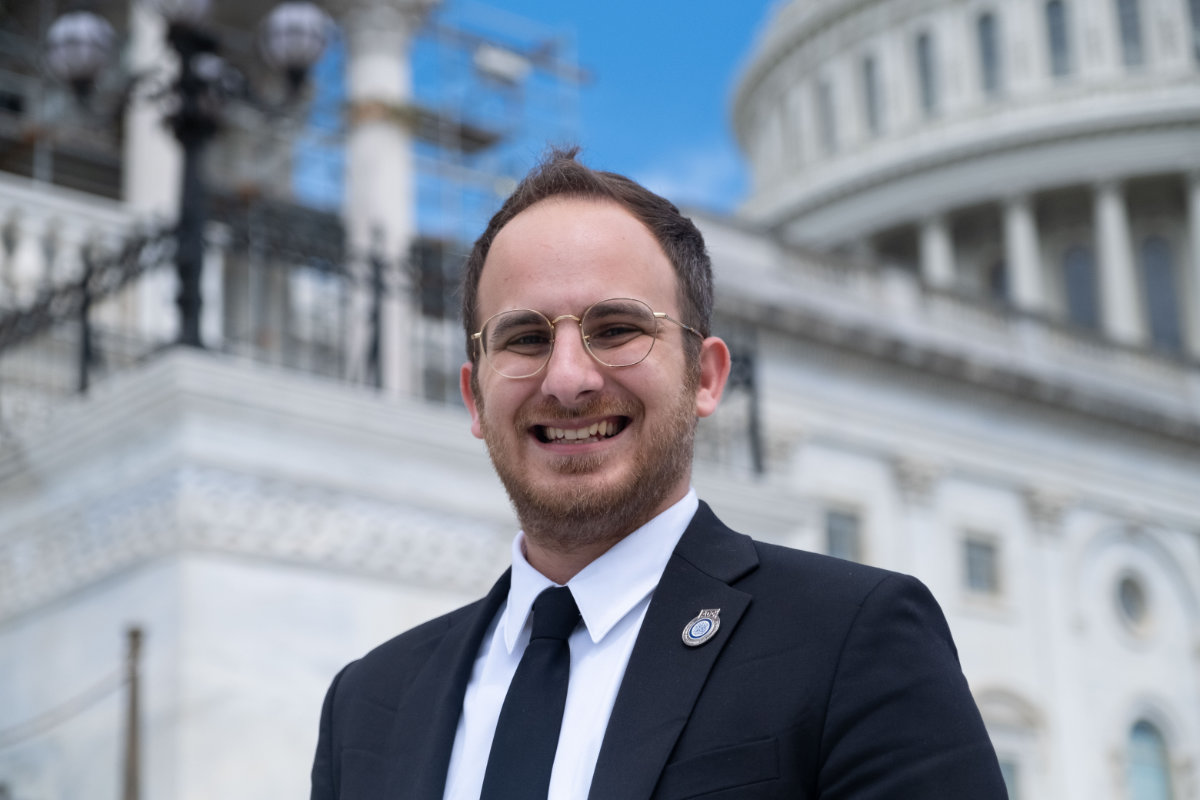
Chris Habiby, national government affairs and advocacy director of ADC. (Supplied)
“Second, being anti-genocide is a winning position for our communities across the country.”
Habiby added that the poll’s results reflect “what we have been demanding for the 10 months and 300 days this genocide has been ongoing — an immediate, permanent ceasefire and an arms embargo on all weapons being sent to Israel.”
Biden faced a significant defeat in the Michigan Democratic primary in February when a majority of voters in Dearborn, a city with a large Arab and Muslim population, chose to vote “uncommitted” rather than for him.
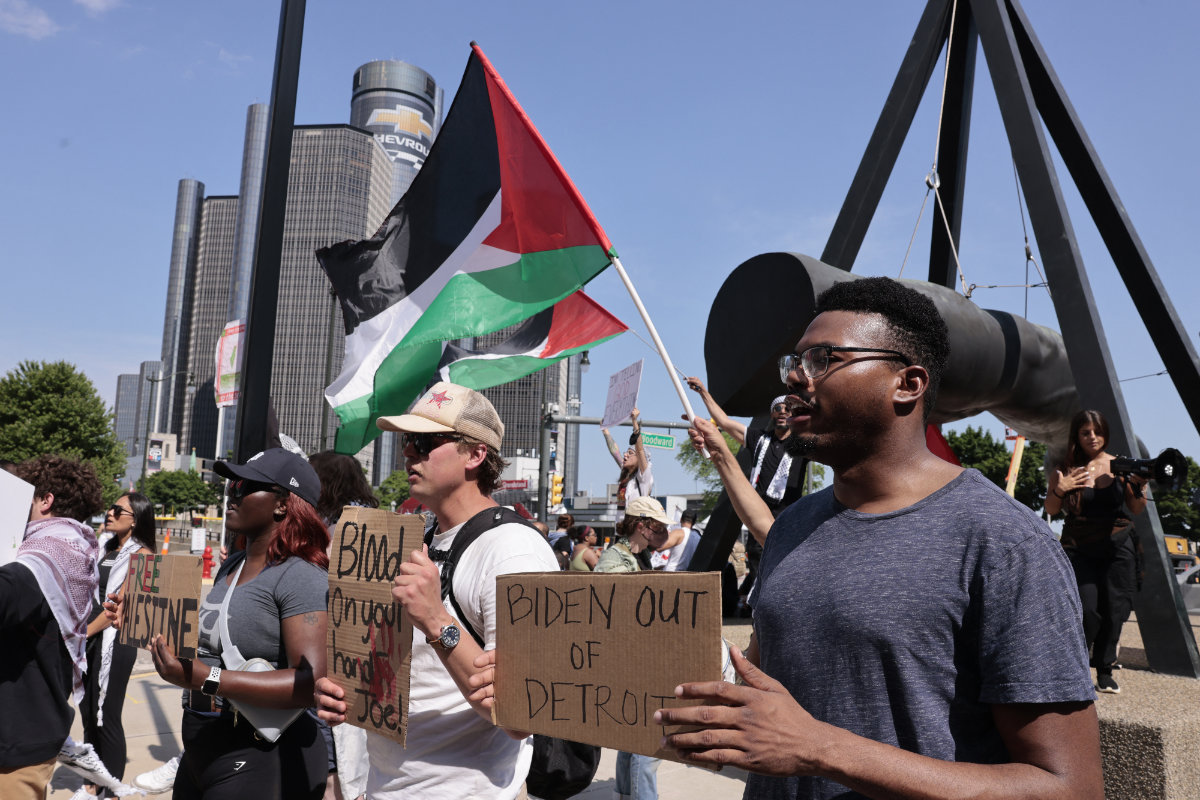
Pro-Palestinian demonstrators protest in Dearborn, Michigan as US President Joe Biden attends the NAACP Freedom Fund dinner in Detroit, Michigan on May 19, 2024. (AFP)
Dearborn Mayor Abdullah Hammoud publicly supported the “uncommitted” vote movement, citing Biden’s policy on the Israel-Gaza conflict, according to USA Today.
In contrast, Stein has actively courted the Arab American vote in Michigan and beyond.
In an interview with Arab News in June, Stein pledged that, if elected, she would halt military support for Israel’s “apartheid government” and push for a genuine peace between Israelis and Palestinians.
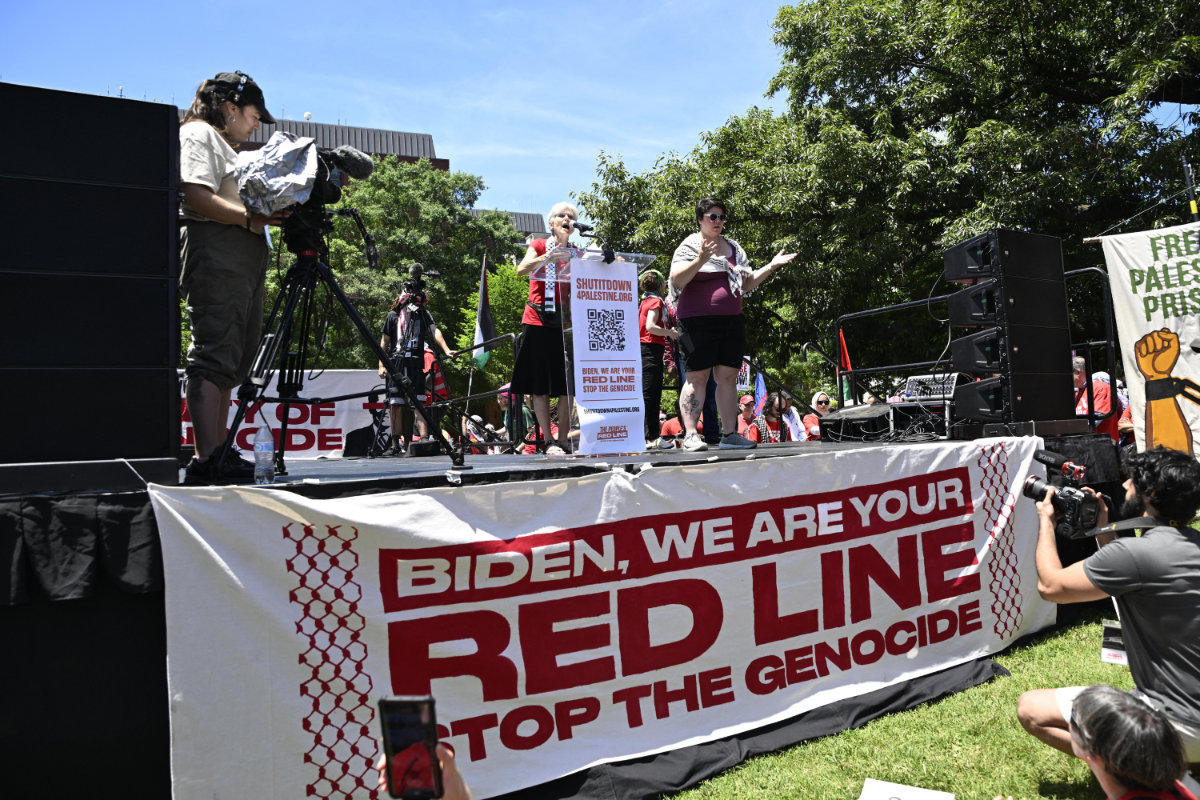
Green Party presidential candidate Jill Stein speaks at a Pro-Palestinian protest in front of the White House on June 8, 2024 in Washington, DC. (Getty Images via AFP)
“Arabs and Muslims have been taken for granted in America. They are victims of racial profiling, Islamophobia and violence against Arabs in this country,” she said.
“There is an absolute violation of our constitutional rights by the government to shut down our dialogue. People are trying to grapple with this genocide we are seeing live and in real-time on our iPhones and computer screens.”
Stein stressed that it is “against US law to send weapons to Israel, which is violating humanitarian rights and interfering in the delivery of humanitarian aid.”
She added: “The people who are standing up to assert our legal values and our human values are being criminalized and charged with crimes.”
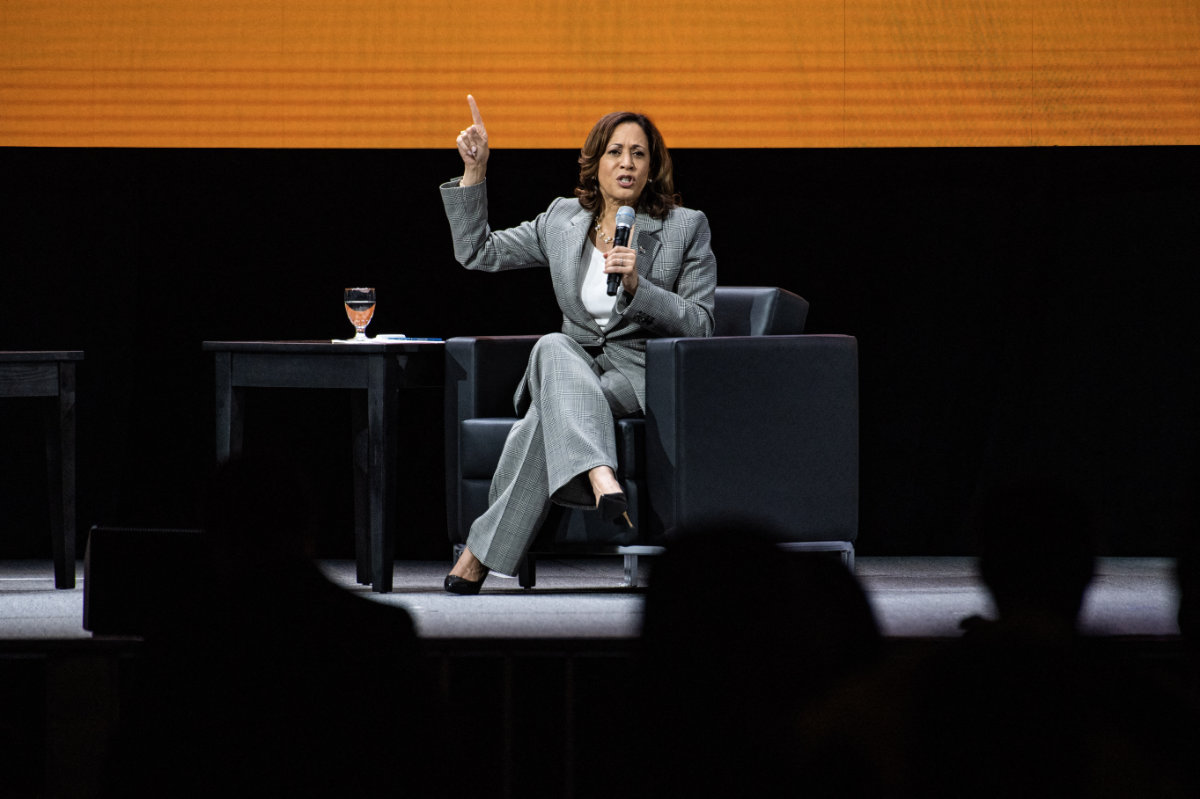
US Vice President Kamala Harris speaks during the 114th NAACP National Convention in Boston, Massachusetts, on July 29, 2023. (AFP/File)
Despite Stein’s growing popularity among Arab-American communities, other presidential candidates still have an opportunity to gain more support from Arab and Muslim voters before November.
ADC’s poll indicates that, in addition to the 27.5 percent of respondents who support Harris, 18 percent are undecided about their vote in November, and 6 percent said they do not plan to vote.
“With nearly 1 in 4 voters either undecided or inclined to sit out the election, there is plenty of room for Harris or any other candidate to earn more support from the community if the right positions are taken,” wrote ADC’s Ayoub on X.



















